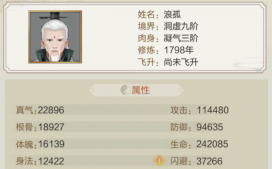首先看下面的代码创建存储过程
1、创建存储过程,语句如下:
|
1
2
3
4
5
6
7
8
9
10
11
12
13
14
15
16
17
18
19
20
21
22
23
24
25
26
27
28
29
30
31
32
33
34
35
36
37
38
39
40
41
42
43
44
45
46
47
48
49
50
51
52
53
54
55
56
57
58
59
60
61
62
63
64
65
66
67
68
69
70
71
72
73
74
75
76
77
78
79
80
81
82
83
84
85
86
87
88
89
90
91
92
93
94
95
96
97
98
99
100
101
102
103
104
105
106
107
108
109
110
111
112
113
114
115
116
117
118
119
120
121
122
123
124
125
126
127
128
129
130
131
132
133
134
135
136
137
138
139
140
141
142
143
144
145
146
147
148
149
150
151
152
153
154
155
156
157
158
159
160
161
162
163
164
165
166
167
168
169
170
171
172
173
174
175
176
177
178
179
180
181
182
183
184
185
186
187
188
189
190
191
192
193
194
195
196
197
198
199
200
201
202
203
204
205
206
207
208
209
210
211
212
|
CREATE PROC P_viewPage @TableName VARCHAR(200), --表名 @FieldList VARCHAR(2000), --显示列名,如果是全部字段则为* @PrimaryKey VARCHAR(100), --单一主键或唯一值键 @Where VARCHAR(2000), --查询条件 不含'where'字符,如id>10 and len(userid)>9 @Order VARCHAR(1000), --排序 不含'order by'字符,如id asc,userid desc,必须指定asc或desc --注意当@SortType=3时生效,记住一定要在最后加上主键,否则会让你比较郁闷 @SortType INT, --排序规则 1:正序asc 2:倒序desc 3:多列排序方法 @RecorderCount INT, --记录总数 0:会返回总记录 @PageSize INT, --每页输出的记录数 @PageIndex INT, --当前页数 @TotalCount INT OUTPUT, --记返回总记录 @TotalPageCount INT OUTPUT --返回总页数AS SET NOCOUNT ON IF ISNULL(@TotalCount,'') = '' SET @TotalCount = 0 SET @Order = RTRIM(LTRIM(@Order)) SET @PrimaryKey = RTRIM(LTRIM(@PrimaryKey)) SET @FieldList = REPLACE(RTRIM(LTRIM(@FieldList)),' ','') WHILE CHARINDEX(', ',@Order) > 0 OR CHARINDEX(' ,',@Order) > 0 BEGIN SET @Order = REPLACE(@Order,', ',',') SET @Order = REPLACE(@Order,' ,',',') END IF ISNULL(@TableName,'') = '' OR ISNULL(@FieldList,'') = '' OR ISNULL(@PrimaryKey,'') = '' OR @SortType < 1 OR @SortType >3 OR @RecorderCount < 0 OR @PageSize < 0 OR @PageIndex < 0 BEGIN PRINT('ERR_00') RETURN END IF @SortType = 3 BEGIN IF (UPPER(RIGHT(@Order,4))!=' ASC' AND UPPER(RIGHT(@Order,5))!=' DESC') BEGIN PRINT('ERR_02') RETURN END END DECLARE @new_where1 VARCHAR(1000) DECLARE @new_where2 VARCHAR(1000) DECLARE @new_order1 VARCHAR(1000) DECLARE @new_order2 VARCHAR(1000) DECLARE @new_order3 VARCHAR(1000) DECLARE @Sql VARCHAR(8000) DECLARE @SqlCount NVARCHAR(4000) IF ISNULL(@where,'') = '' BEGIN SET @new_where1 = ' ' SET @new_where2 = ' WHERE ' END ELSE BEGIN SET @new_where1 = ' WHERE ' + @where SET @new_where2 = ' WHERE ' + @where + ' AND ' END IF ISNULL(@order,'') = '' OR @SortType = 1 OR @SortType = 2 BEGIN IF @SortType = 1 BEGIN SET @new_order1 = ' ORDER BY ' + @PrimaryKey + ' ASC' SET @new_order2 = ' ORDER BY ' + @PrimaryKey + ' DESC' END IF @SortType = 2 BEGIN SET @new_order1 = ' ORDER BY ' + @PrimaryKey + ' DESC' SET @new_order2 = ' ORDER BY ' + @PrimaryKey + ' ASC' END END ELSE BEGIN SET @new_order1 = ' ORDER BY ' + @Order END IF @SortType = 3 AND CHARINDEX(','+@PrimaryKey+' ',','+@Order)>0 BEGIN SET @new_order1 = ' ORDER BY ' + @Order SET @new_order2 = @Order + ',' SET @new_order2 = REPLACE(REPLACE(@new_order2,'ASC,','{ASC},'),'DESC,','{DESC},') SET @new_order2 = REPLACE(REPLACE(@new_order2,'{ASC},','DESC,'),'{DESC},','ASC,') SET @new_order2 = ' ORDER BY ' + SUBSTRING(@new_order2,1,LEN(@new_order2)-1) IF @FieldList <> '*' BEGIN SET @new_order3 = REPLACE(REPLACE(@Order + ',','ASC,',','),'DESC,',',') SET @FieldList = ',' + @FieldList WHILE CHARINDEX(',',@new_order3)>0 BEGIN IF CHARINDEX(SUBSTRING(','+@new_order3,1,CHARINDEX(',',@new_order3)),','+@FieldList+',')>0 BEGIN SET @FieldList = @FieldList + ',' + SUBSTRING(@new_order3,1,CHARINDEX(',',@new_order3)) END SET @new_order3 = SUBSTRING(@new_order3,CHARINDEX(',',@new_order3)+1,LEN(@new_order3)) END SET @FieldList = SUBSTRING(@FieldList,2,LEN(@FieldList)) END END SET @SqlCount = 'SELECT @TotalCount=COUNT(*),@TotalPageCount=CEILING((COUNT(*)+0.0)/' + CAST(@PageSize AS VARCHAR)+') FROM ' + @TableName + @new_where1 IF @RecorderCount = 0 BEGIN EXEC SP_EXECUTESQL @SqlCount,N'@TotalCount INT OUTPUT,@TotalPageCount INT OUTPUT', @TotalCount OUTPUT,@TotalPageCount OUTPUT END ELSE BEGIN SELECT @TotalCount = @RecorderCount END IF @PageIndex > CEILING((@TotalCount+0.0)/@PageSize) BEGIN SET @PageIndex = CEILING((@TotalCount+0.0)/@PageSize) END IF @PageIndex = 1 OR @PageIndex >= CEILING((@TotalCount+0.0)/@PageSize) BEGIN IF @PageIndex = 1 --返回第一页数据 BEGIN SET @Sql = 'SELECT TOP ' + STR(@PageSize) + ' ' + @FieldList + ' FROM ' + @TableName + @new_where1 + @new_order1 END IF @PageIndex >= CEILING((@TotalCount+0.0)/@PageSize) --返回最后一页数据 BEGIN SET @Sql = 'SELECT TOP ' + STR(@PageSize) + ' ' + @FieldList + ' FROM (' + 'SELECT TOP ' + STR(ABS(@PageSize*@PageIndex-@TotalCount-@PageSize)) + ' ' + @FieldList + ' FROM ' + @TableName + @new_where1 + @new_order2 + ' ) AS TMP ' + @new_order1 END END ELSE BEGIN IF @SortType = 1 --仅主键正序排序 BEGIN IF @PageIndex <= CEILING((@TotalCount+0.0)/@PageSize)/2 --正向检索 BEGIN SET @Sql = 'SELECT TOP ' + STR(@PageSize) + ' ' + @FieldList + ' FROM ' + @TableName + @new_where2 + @PrimaryKey + ' > ' + '(SELECT MAX(' + @PrimaryKey + ') FROM (SELECT TOP ' + STR(@PageSize*(@PageIndex-1)) + ' ' + @PrimaryKey + ' FROM ' + @TableName + @new_where1 + @new_order1 +' ) AS TMP) '+ @new_order1 END ELSE --反向检索 BEGIN SET @Sql = 'SELECT TOP ' + STR(@PageSize) + ' ' + @FieldList + ' FROM (' + 'SELECT TOP ' + STR(@PageSize) + ' ' + @FieldList + ' FROM ' + @TableName + @new_where2 + @PrimaryKey + ' < ' + '(SELECT MIN(' + @PrimaryKey + ') FROM (SELECT TOP ' + STR(@TotalCount-@PageSize*@PageIndex) + ' ' + @PrimaryKey + ' FROM ' + @TableName + @new_where1 + @new_order2 +' ) AS TMP) '+ @new_order2 + ' ) AS TMP ' + @new_order1 END END IF @SortType = 2 --仅主键反序排序 BEGIN IF @PageIndex <= CEILING((@TotalCount+0.0)/@PageSize)/2 --正向检索 BEGIN SET @Sql = 'SELECT TOP ' + STR(@PageSize) + ' ' + @FieldList + ' FROM ' + @TableName + @new_where2 + @PrimaryKey + ' < ' + '(SELECT MIN(' + @PrimaryKey + ') FROM (SELECT TOP ' + STR(@PageSize*(@PageIndex-1)) + ' ' + @PrimaryKey +' FROM '+ @TableName + @new_where1 + @new_order1 + ') AS TMP) '+ @new_order1 END ELSE --反向检索 BEGIN SET @Sql = 'SELECT TOP ' + STR(@PageSize) + ' ' + @FieldList + ' FROM (' + 'SELECT TOP ' + STR(@PageSize) + ' ' + @FieldList + ' FROM ' + @TableName + @new_where2 + @PrimaryKey + ' > ' + '(SELECT MAX(' + @PrimaryKey + ') FROM (SELECT TOP ' + STR(@TotalCount-@PageSize*@PageIndex) + ' ' + @PrimaryKey + ' FROM ' + @TableName + @new_where1 + @new_order2 +' ) AS TMP) '+ @new_order2 + ' ) AS TMP ' + @new_order1 END END IF @SortType = 3 --多列排序,必须包含主键,且放置最后,否则不处理 BEGIN IF CHARINDEX(',' + @PrimaryKey + ' ',',' + @Order) = 0 BEGIN PRINT('ERR_02') RETURN END IF @PageIndex <= CEILING((@TotalCount+0.0)/@PageSize)/2 --正向检索 BEGIN SET @Sql = 'SELECT TOP ' + STR(@PageSize) + ' ' + @FieldList + ' FROM ( ' + 'SELECT TOP ' + STR(@PageSize) + ' ' + @FieldList + ' FROM ( ' + ' SELECT TOP ' + STR(@PageSize*@PageIndex) + ' ' + @FieldList + ' FROM ' + @TableName + @new_where1 + @new_order1 + ' ) AS TMP ' + @new_order2 + ' ) AS TMP ' + @new_order1 END ELSE --反向检索 BEGIN SET @Sql = 'SELECT TOP ' + STR(@PageSize) + ' ' + @FieldList + ' FROM ( ' + 'SELECT TOP ' + STR(@PageSize) + ' ' + @FieldList + ' FROM ( ' + ' SELECT TOP ' + STR(@TotalCount-@PageSize*@PageIndex+@PageSize) + ' ' + @FieldList + ' FROM ' + @TableName + @new_where1 + @new_order2 + ' ) AS TMP ' + @new_order1 + ' ) AS TMP ' + @new_order1 END END END PRINT(@Sql) EXEC(@Sql)GO |
2、SQL Server 中调用测试代码
|
1
2
3
4
5
6
|
--执行存储过程declare @TotalCount int, @TotalPageCount intexec P_viewPage 'T_Module','*','ModuleID','','',1,0,10,1,@TotalCount output,@TotalPageCount outputSelect @TotalCount,@TotalPageCount; |
asp.net 代码实现:
|
1
2
3
4
5
6
7
8
9
10
11
12
13
14
15
16
17
18
19
20
21
22
23
24
25
26
27
28
29
30
31
32
33
34
35
36
37
38
39
40
41
42
43
44
45
46
47
48
49
50
51
52
53
54
55
56
57
58
59
60
61
62
63
64
65
66
67
68
|
#region ===========通用分页存储过程=========== public static DataSet RunProcedureDS(string connectionString, string storedProcName, IDataParameter[] parameters, string tableName) { using (SqlConnection connection = new SqlConnection(connectionString)) { DataSet dataSet = new DataSet(); connection.Open(); SqlDataAdapter sqlDA = new SqlDataAdapter(); sqlDA.SelectCommand = BuildQueryCommand(connection, storedProcName, parameters); sqlDA.Fill(dataSet, tableName); connection.Close(); return dataSet; } } /// <summary> /// 通用分页存储过程 /// </summary> /// <param name="connectionString"></param> /// <param name="tblName"></param> /// <param name="strGetFields"></param> /// <param name="primaryKey"></param> /// <param name="strWhere"></param> /// <param name="strOrder"></param> /// <param name="sortType"></param> /// <param name="recordCount"></param> /// <param name="PageSize"></param> /// <param name="PageIndex"></param> /// <param name="totalCount"></param> /// <param name="totalPageCount"></param> /// <returns></returns> public static DataSet PageList(string connectionString, string tblName, string strGetFields, string primaryKey, string strWhere, string strOrder, int sortType, int recordCount, int PageSize, int PageIndex,ref int totalCount,ref int totalPageCount) { SqlParameter[] parameters ={ new SqlParameter("@TableName ",SqlDbType.VarChar,200), new SqlParameter("@FieldList",SqlDbType.VarChar,2000), new SqlParameter("@PrimaryKey",SqlDbType.VarChar,100), new SqlParameter("@Where",SqlDbType.VarChar,2000), new SqlParameter("@Order",SqlDbType.VarChar,1000), new SqlParameter("@SortType",SqlDbType.Int), new SqlParameter("@RecorderCount",SqlDbType.Int), new SqlParameter("@PageSize",SqlDbType.Int), new SqlParameter("@PageIndex",SqlDbType.Int), new SqlParameter("@TotalCount",SqlDbType.Int), new SqlParameter("@TotalPageCount",SqlDbType.Int)}; parameters[0].Value = tblName; parameters[1].Value = strGetFields; parameters[2].Value = primaryKey; parameters[3].Value = strWhere; parameters[4].Value = strOrder; parameters[5].Value = sortType; parameters[6].Value = recordCount; parameters[7].Value = PageSize; parameters[8].Value = PageIndex; parameters[9].Value = totalCount; parameters[9].Direction = ParameterDirection.Output; parameters[10].Value = totalPageCount; parameters[10].Direction = ParameterDirection.Output; DataSet ds = RunProcedureDS(connectionString, "P_viewPage", parameters, "PageListTable"); totalCount = int.Parse(parameters[9].Value.ToString()); totalPageCount = int.Parse(parameters[10].Value.ToString()); return ds; } #endregionDataSet ds = SqlHelper.PageList(SqlHelper.LocalSqlServer, "T_User", "*", "UserID", "", "", 1, 0, pageSize, 1, ref totalCount, ref totalPageCount);this.RptData.DataSource = ds;this.RptData.DataBind(); |
以上内容就是本文介绍asp.net中如何调用sql存储过程实现分页的全部内容,希望对大家今后的学习有所帮助,当然方法不止本文所述,欢迎与大家分享好的方案。





